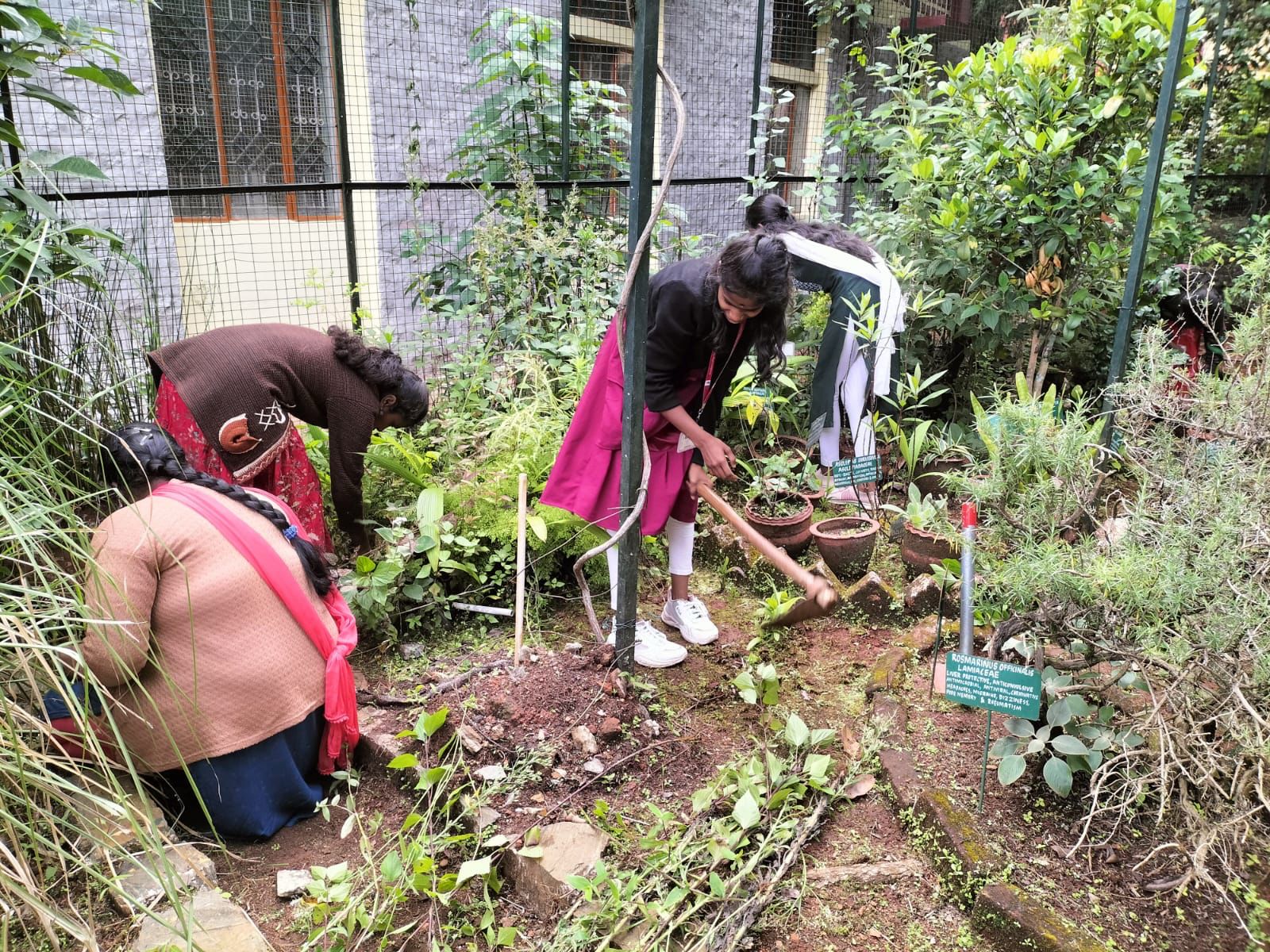BEST PRATICES
Preserving Biodiversity to Promote Sustainability
Our institution reaffirms to pursue our dedication to the societal well-being and ecological balance through conscientious preservation of our greenery by harmonious intersection of education and environmental consciousness. To create a green, plastic-free, spit- free campus we have implemented policies banning single use of plastics, promote reusable alternatives, established comprehensive waste management through vermicomposting, accomplished strict prohibition on spitting and enhanced environmental consciousness among students and the community by preserving indigenous biodiversity.
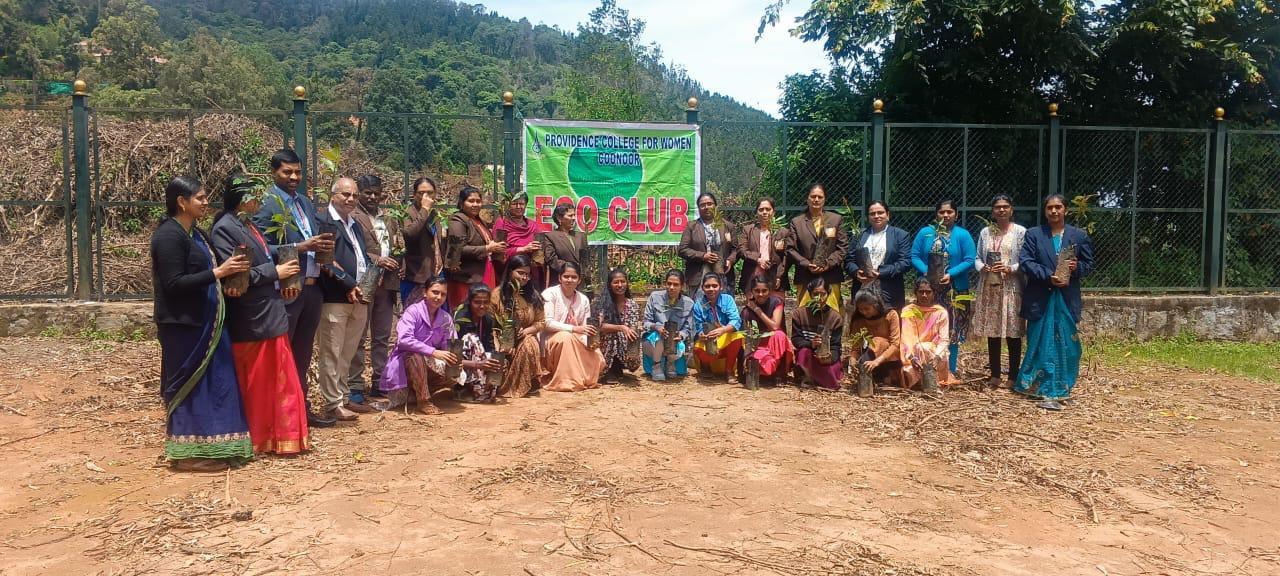
The Context
Located in the Nilgiris, home to the unique shola biome, our campus recognizes the responsibility to preserve this sensitive ecosystem. The shola ecosystem possesses a significant ability to retain water, functioning as essential groundwater aquifers and creating a refreshing , humid microclimate. This environment is vital for the distinctive habitat that supports the various flora and fauna native to the Western Ghats. During the observance of different environmental days, shola tree saplings were planted on the campus.
The campus has also been declared a “spit-free zone,” promoting public health and cleanliness. To extend this commitment, we organize rallies and awareness programs for the community, educating the public on the health hazards associated with spitting.
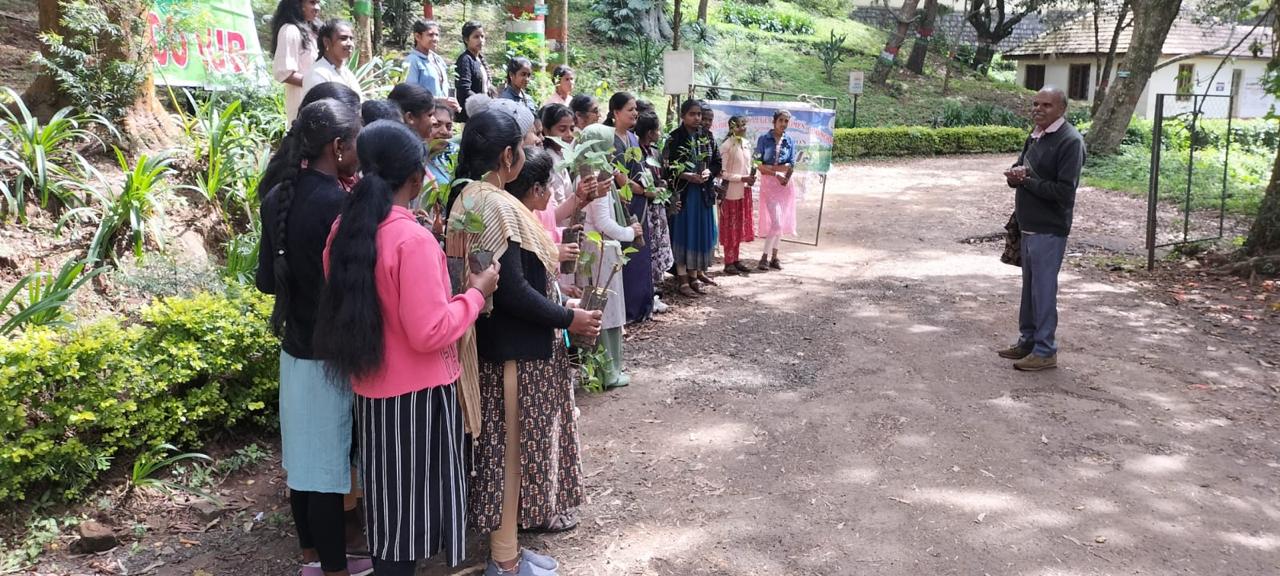
The practice
To promote environmental sustainability and import the significance of shola species , the exotic species of the campus were removed and replaced with native species like Magnolia, various species of Syzigium, Ficus, Elaeocarpus species etc. Van Mahotsav week was focused on the planting of tree saplings of shola species within the college grounds. Students were taught how planting trees can help with carbon sequestration, which has the potential to alleviate issues related to climate change and environmental degradation by conducting various competitions. This program raised awareness among all students and staff at the Institute about the importance of preserving campus biodiversity and enhancing greenery.The Eco- green club of our college conducted an awareness programme followed by fruit tree sapling plantation inside the campus. Approximately 50 saplings of various fruit trees were planted, contributing to the college's green initiatives. Additionally, 400 Shola tree saplings were distributed to all the participants for further planting, aimed at conserving and enhancing the green belt of the campus and its surroundings. The NSS unit of College , took the initiative to plant 100 trees on our campus to promote environmental sustainability.
In our efforts to enhance plant diversity, students enthusiastically participated in creating seed balls. They combined various seeds with soil and compost, forming them into compact balls that were then dried. These balls are stored for long periods after removing the moisture and later thrown across different areas so that they germinate depending on the situations of the environment. The seed balls were also distributed to the school children which created awareness to them and the local community in sustaining their environment.
Considering the importance of green drugs and the utilization of our surrounding natural resources, a medicinal garden is cultivated on campus .To provide students with practical knowledge of organic waste management , a vermicompost unit is built inside the campus. With the aim to give students hands-on experience in managing organic waste, a vermicomposting facility has been established on campus.
As part of our initiative to cultivate a healthier atmosphere, our campus has also been designated as a “spit-free zone.” Recognising the detrimental effects of spitting on public health, we held an awareness initiative at the Coonoor bus stand and railway station where our team informed the community about the health hazards linked to this behavior and highlighted the importance of keeping public areas clean.
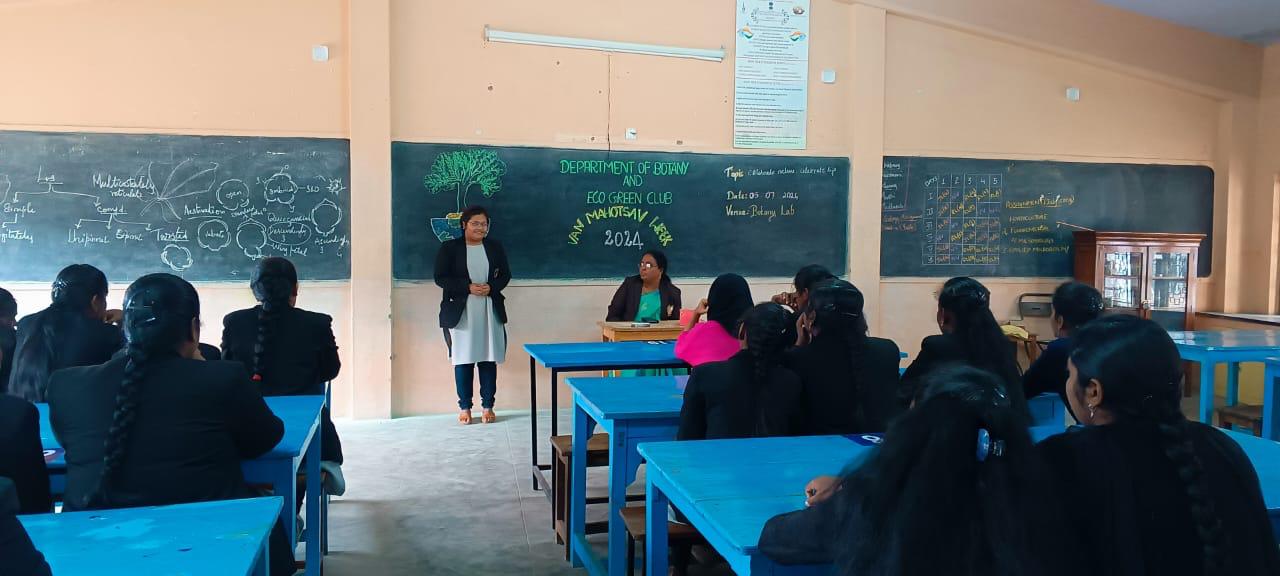
Evidence of success
Every project carried out by our college aims to enhance the environment, society, and the well-being of individuals. Our comprehensive green audit demonstrates a positive effect on the environment, reducing our institution’s ecological footprint and setting a standard for sustainability.
In our dedication to promoting a healthier community, we extended the “Spit-Free Nilgiris – Healthy Nilgiris” initiative to the Coonoor Bus Stand and Railway Station, successfully designating it as a spit-free area. This community effort was recognized by the municipality, and our college was also honored with an award from the Commissioner of Coonoor Municipality.
With the launch of the tree plantation initiative called 'Maperum Tree Planting,' the 'Pasumai Vithai Semmal Award' was awarded to two of our faculty members in acknowledgment of their exceptional efforts in environmental conservation.
Our audit reports, certificates, and awards highlight the significance of our environmental efforts, affirming our institution's commitment to being a responsible steward of the environment. These recognitions confirm our dedication and encourage us to keep developing effective conservation strategies. By engaging in these initiatives, we strive to motivate sustainable practices and cultivate a healthier, more accountable community.
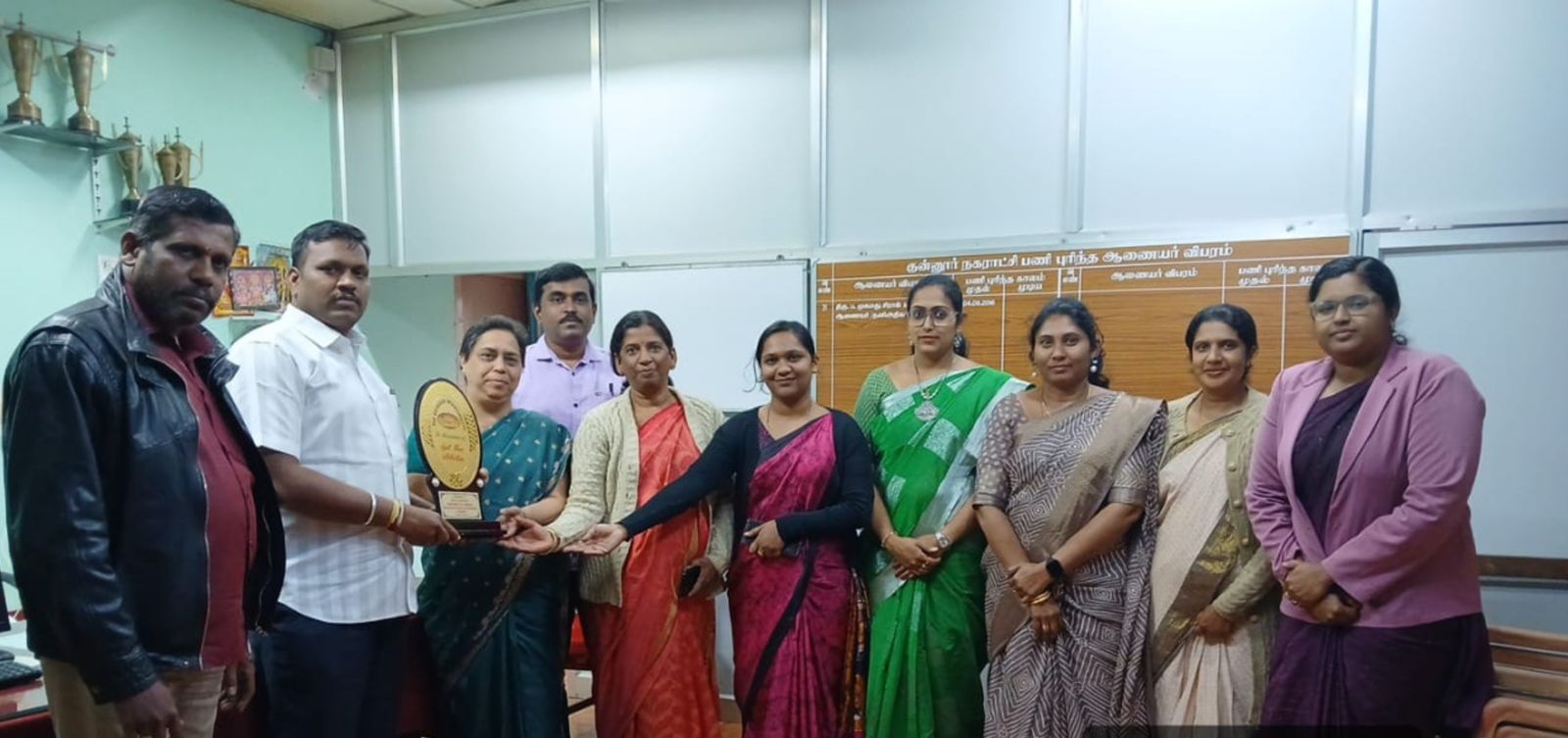
Problems Encountered and Resources Required
Our initiatives encounter substantial hurdles due to constrained financial resources and the essential need for community involvement. Effectively raising awareness among the public and engaging individuals in diverse locations demands significant effort . Furthermore, navigating the intricate process of obtaining approvals from government bodies presents an additional challenge, as every project must adhere to regulatory requirements and secure the needed permits. Attracting sponsorships to financially support our initiatives continues to be a recurring challenge, significantly affecting the magnitude and impact of our endeavors. In spite of these obstacles, our steadfast dedication to environmental and social advancement inspires us to seek innovative approaches that sustain and enhance our beneficial effect on both society and the environment.
